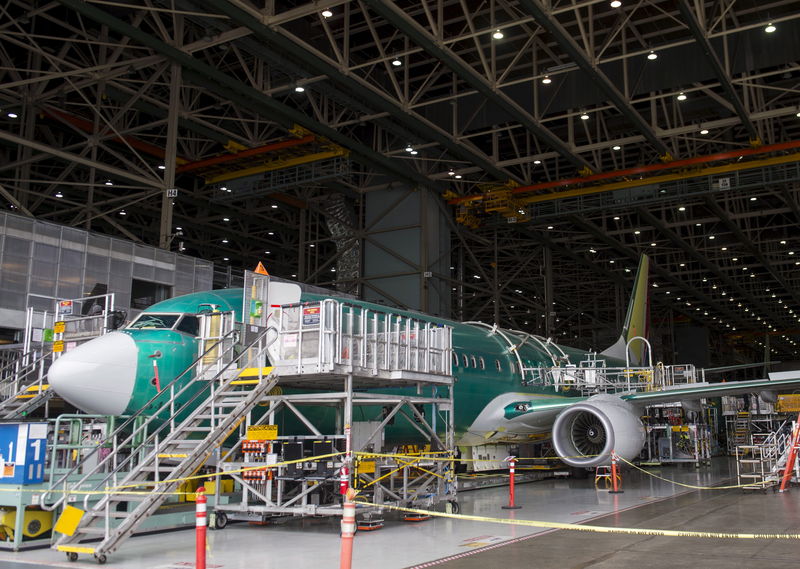This post was originally published on this site
https://i-invdn-com.akamaized.net/trkd-images/LYNXMPEH3R0QN_L.jpg
(Reuters) -Boeing Co reported a smaller quarterly loss on Wednesday as increased 737 MAX jet deliveries reflected a cautious rebound in air travel from the coronavirus pandemic, though the embattled U.S. planemaker took a charge on its Air Force One presidential aircraft program.
But optimism in a resurgent U.S. domestic travel market is offset by growing concerns over COVID variants in India and elsewhere, clouding the industry’s recovery.
Boeing (NYSE:BA) has delivered more than 85 737 MAX jetliners, out of a backlog of hundreds of jets, since it was cleared by most regulators to re-enter service late last year following two fatal crashes, lifting revenue and cash flow at the planemaker.
But Boeing’s workhorse for short-haul travel remains banned in the rebounding China market, where Boeing remains exposed to long-simmering geopolitical tensions that have continued under U.S. President Joe Biden.
A new electrical grounding problem found on some models of the jet earlier this month has also cast a shadow on Boeing’s freshly re-affirmed plans to increase 737 MAX production to 31 planes per month by early 2022. Airlines have pulled dozens of 737 MAX jets from service, awaiting repairs as Boeing finds a fix.
“While the global pandemic continues to challenge the overall market environment, we view 2021 as a key inflection point for our industry,” Boeing’s newly-prolonged Chief Executive Dave Calhoun said in a statement.
Analysts will be pressing Calhoun on a conference call later for updates on a barrage of technical and financial challenges and plans for a potential new jetliner to counter Airbus’ A321.
Last week, Boeing said it extended its required retirement age of 65 to 70 to allow Calhoun, 64, to stay in the top job.
Calhoun aims to stay in the role until he is 70, insiders say. His decision surprised many in the industry who saw him as a shorter-term crisis manager, and it also triggered the upcoming exit of Boeing’s well-regarded CFO and heir-apparent for the job, Greg Smith, 54.
Boeing also reaffirmed a sharply-reduced production rate of five 787 jetliners per month after consolidating production at its South Carolina factory.
It is facing reduced demand due to the pandemic’s impact on longer-haul travel, and a growing price tag for 787 retrofits due to production defects embedded in dozens of the advanced carbon-composite jetliners.
It still expects to deliver the first 777X mini-jumbo in late 2023, despite certification and design challenges, with a combined output of the new 777X and its 777 legacy model of two a month.
The U.S. planemaker reported a core operating loss of $353 million in the first quarter, compared with a loss of $1.70 billion a year earlier.
Boeing recorded a pre-tax charge of $318 million in the quarter related to a new fleet of Air Force One presidential aircraft based on its 747-8 jumbo jet.
Air Force One subcontractor GDC Technics filed for bankruptcy on Monday after Boeing canceled its contracts.
Boeing sued GDC earlier this month for failing to complete interior work on the two heavily modified 747-8 Air Force One planes. GDC countersued last week, seeking at least $20 million for cancelling the contracts.
On the plus side, Boeing completed a hot-fire engine test on NASA’s forthcoming SLS rocket and started production on the U.S. Air Force’s new trainer jet.
“With no changes to the commercial aircraft program outlook, and still no 2021 guidance, we think that the response to this set of results is likely to be fairly muted,” said Vertical Research Partners analyst Robert Stallard.

